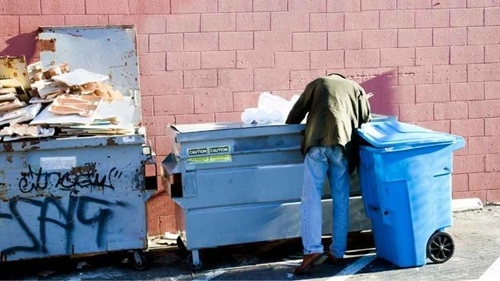Burning plastic might sound like a convenient way to dispose of waste, but the legal situation is far from simple. In many cases, burning plastic is prohibited under federal, state, or local laws, or subject to restrictions—and doing so can give rise to civil or criminal penalties. Below we unpack how U.S. law regulates plastic combustion, what exceptions exist, and what risks someone faces.

Federal & Regulatory Framework
At the federal level, the U.S. Environmental Protection Agency (EPA) and federal statutes do not have a blanket law that says “it is always illegal to burn plastic anywhere under all conditions.” Rather, the federal regime regulates open burning and emissions of pollutants, and grants authority to states, localities, and regional administrators to prohibit or restrict burning of various materials—including plastics.
- The federal open burning rules (e.g. 40 CFR § 49.131) generally prohibit “all open burning” (with limited exemptions for cultural or traditional fires) when air quality is degraded or when a regional administrator issues a burn ban. The rules specifically ban burning of “any material other than natural vegetation that normally emits dense smoke or noxious fumes when burned.”
- Under EPA guidance and regulations, materials such as plastics, rubber, treated wood, and other chemically laden wastes are often disallowed in open burning. In some regulatory schemes, only “clean fuel” (not containing garbage, plastic, rubber, or refuse) can be used to ignite fires.
- For large-scale incineration or waste-to-energy facilities, EPA rules (or proposed revisions) impose stringent air pollution controls, emissions standards, and permitting requirements.
In short: federal rules set the floor for prohibiting open burning of plastics and allocate to states and local jurisdictions the power to impose stricter rules.
State & Local Laws
Most of the legal “teeth” come at the state or local level. Many states have explicit prohibitions or limitations on burning plastic in outdoor settings or in residential burn barrels:
- In Illinois, any burning in or near towns is limited to “landscape waste,” and burning garbage or plastics is prohibited.
- In Wisconsin, burning plastics—whether agricultural or rigid containers—is expressly illegal.
- Tennessee law prohibits burning of plastics, vinyl siding, rubber products, and similar materials.
- In North Carolina, the law has long banned most open burning, including of plastics, though there have been legislative proposals to carve out exceptions for agricultural plastics.
- Many states (e.g. Louisiana) ban open burning of household waste, solid waste, and chemical materials outright.
- Local air districts, cities, or counties often impose stricter ordinances. For example, in California, the Residential Waste Burning rules forbid burning “disallowed combustibles” such as plastics in most cases.
Consequences & Enforcement
When someone burns plastic in violation of federal, state, or local rules, they may face:
- Civil penalties / fines imposed by environmental agencies or local authorities
- Criminal charges in severe or repeated cases, especially if the burning causes harm, violation of air quality laws, or public nuisance
- Injunctions or remediation orders requiring cleanup, cessation of activity, or mitigation
- Liability for third-party harm (e.g. if neighbors suffer injury, property damage, or respiratory harm)
Enforcement is often carried out by state environmental protection departments, local air quality boards, fire departments, or municipal code enforcement.
Why the Restrictions?
The legal restrictions are rooted not just in policy but in science and public health:
- Burning plastic emits a cocktail of pollutants—dioxins, furans, heavy metals, phthalates, volatile organic compounds, microplastics, and more—that can harm respiratory systems, cause cancer risk, endocrine disruption, and degrade air quality.
- Uncontrolled open burning contributes to smog, particulate matter pollution, and adverse environmental impacts.
- Modern waste collection systems and regulated disposal or recycling offer safer alternatives.
When Might Burning Be Allowed (or Less Restricted)?
There are limited exceptions or special circumstances:
- Cultural, traditional, or ceremonial fires may be exempt under some federal and state rules, provided they meet size or method limits.
- Some states may allow agricultural practices to burn certain agricultural plastics under strict conditions (distance from dwellings, volume limits, etc.). For example, Iowa allows burning of paper or plastic pesticide containers under distance and quantity constraints.
- Some localities may permit burning of “clean wood” or vegetative waste, but not plastics or synthetic materials.
- Out-of-sight, contained incinerators (subject to air permit and emissions controls) may lawfully combust waste including plastics under regulated conditions.
FAQs
Q1. Is it always illegal to burn any plastic in the U.S.?
No. The legality depends on location (federal, state, local), the type of fire (open burn vs controlled incinerator), the materials burned, and air quality conditions. But in most jurisdictions, burning plastic in open or residential settings is prohibited or heavily restricted.
Q2. What constitutes “open burning”?
Open burning generally refers to outdoor fires not using controlled combustion equipment, such as burn barrels, waste piles, bonfires, or brush piles. Emissions from open burning are less controllable and more polluting.
Q3. Can I burn plastic in a residential fireplace or wood stove?
Typically no. Fireplaces or wood stoves are not designed to handle plastic combustion, and many jurisdictions prohibit burning plastics in residential settings. If the plastic belongs to someone else, there may also be property damage or trespass issues.
Q4. What if I burn a small plastic item (say, a piece of bottle)?
Even burning a small plastic object might violate local open-burning or waste laws. Because of the potential for toxic emissions and smoke, authorities generally treat any combustion of plastic in unauthorized settings as unlawful.
Q5. What defenses might someone raise?
A person might argue that they had a permit, that the burning was part of a recognized agricultural practice or cultural event, or that the local air authority had lifted a prohibition. But defenses depend heavily on the specific statute and ordinance.
Q6. How can I find the law in my area?
Check your state environmental or air quality agency, local county or city ordinances on open burning or solid waste disposal, and municipal fire or code enforcement rules.
Q7. What are better disposal alternatives?
- Recycling or drop-off programs
- Acceptable waste collection / municipal solid waste systems
- Composting of organic waste
- Using permitted incineration facilities (where legal)
- Reducing plastic use

